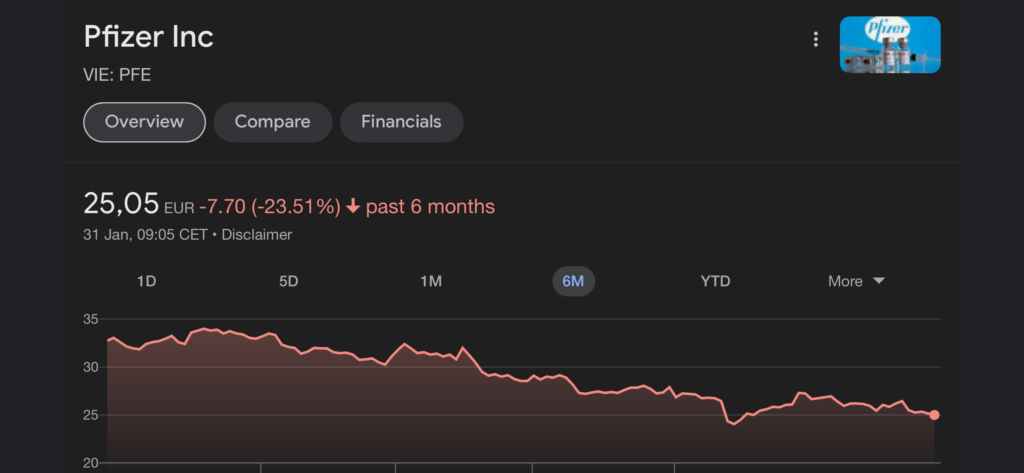The American pharmaceutical company Pfizer has had to deal with collapsed turnover and profit in the past financial year.
This was because there was much less demand for Pfizer’s vaccine against the coronavirus. A pill against the lung virus from Pfizer also sold much less well now that the corona pandemic is over.
Sales of Pfizer’s corona vaccine fell by more than half compared to 2022.
This was mainly because the US government purchased fewer doses. The pharmaceutical group also sold much less of Paxlovid, a pill that reduces the symptoms of Covid. In the fourth quarter there was even a negative turnover from corona pills, because the US government returned millions of doses..
Total turnover fell by 45 percent to 50.9 billion dollars (47 billion euros). The company subsequently recorded a profit of $2.1 billion, which is 93 percent less than a year earlier.
Decreased Customer Loyalty: When trust is lost, customers may become skeptical and hesitant to continue doing business with the company. They may switch to competitors, resulting in a loss of market share. It can be challenging to regain customer loyalty once it’s lost.
Negative Reputation: Word spreads quickly in today’s interconnected world. If a company loses trust, it can quickly develop a negative reputation. Negative news, reviews, or experiences shared by customers or the media can harm the company’s brand image and make it more difficult to attract new customers or clients.
Financial Impact: Declining customer trust can lead to a decrease in sales and revenue. Shareholders may lose confidence, leading to a drop in stock price. This can make it harder for the company to secure funding or raise capital.
Legal and Regulatory Consequences: Depending on the circumstances, loss of trust may result in legal challenges, such as lawsuits or investigations by regulatory bodies. Violations of laws, unethical behavior, or breach of trust can have serious legal and financial consequences for a company like Pfizer.</.
𝔸.𝕀 𝔼𝕤𝕔𝕒𝕡𝕖

